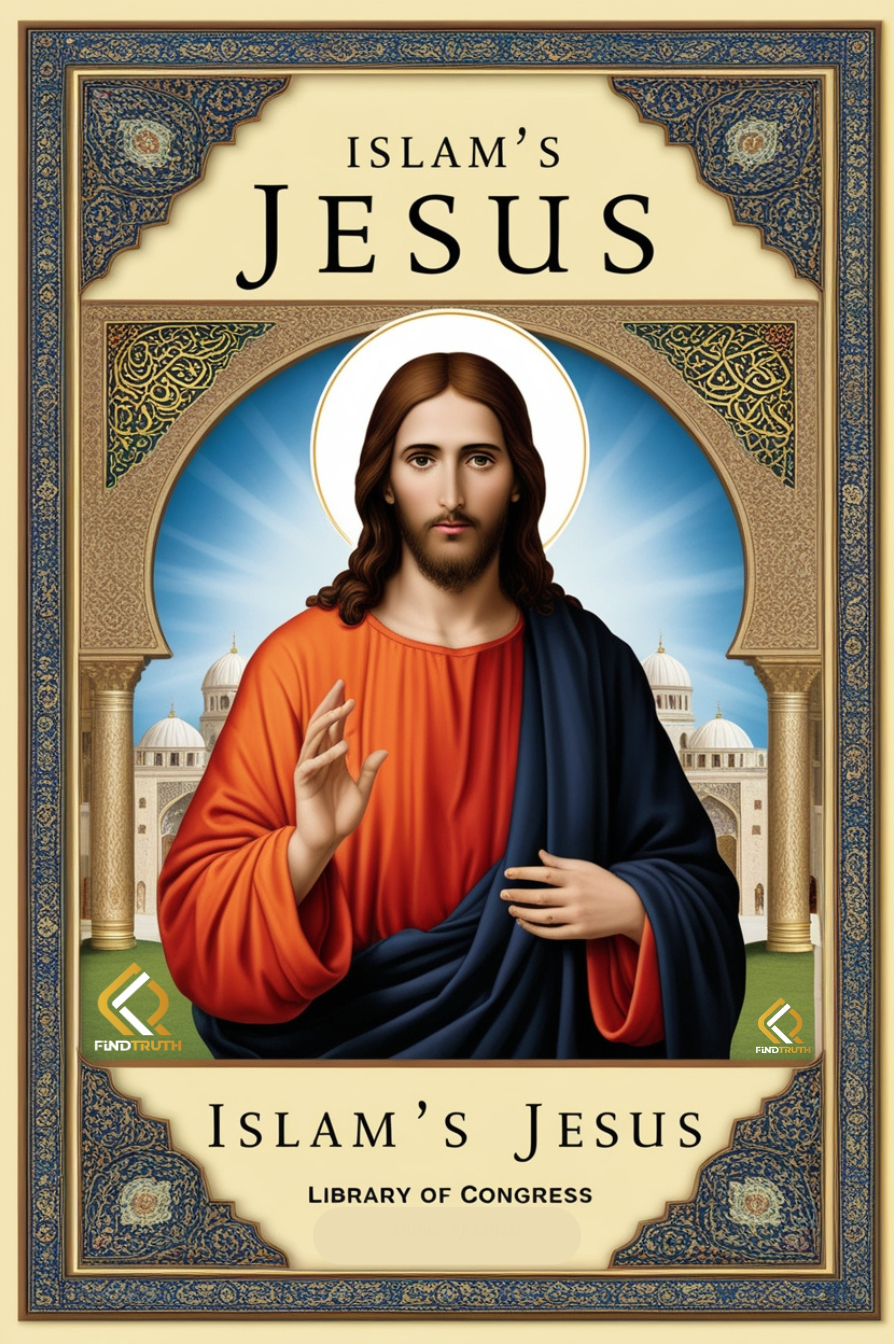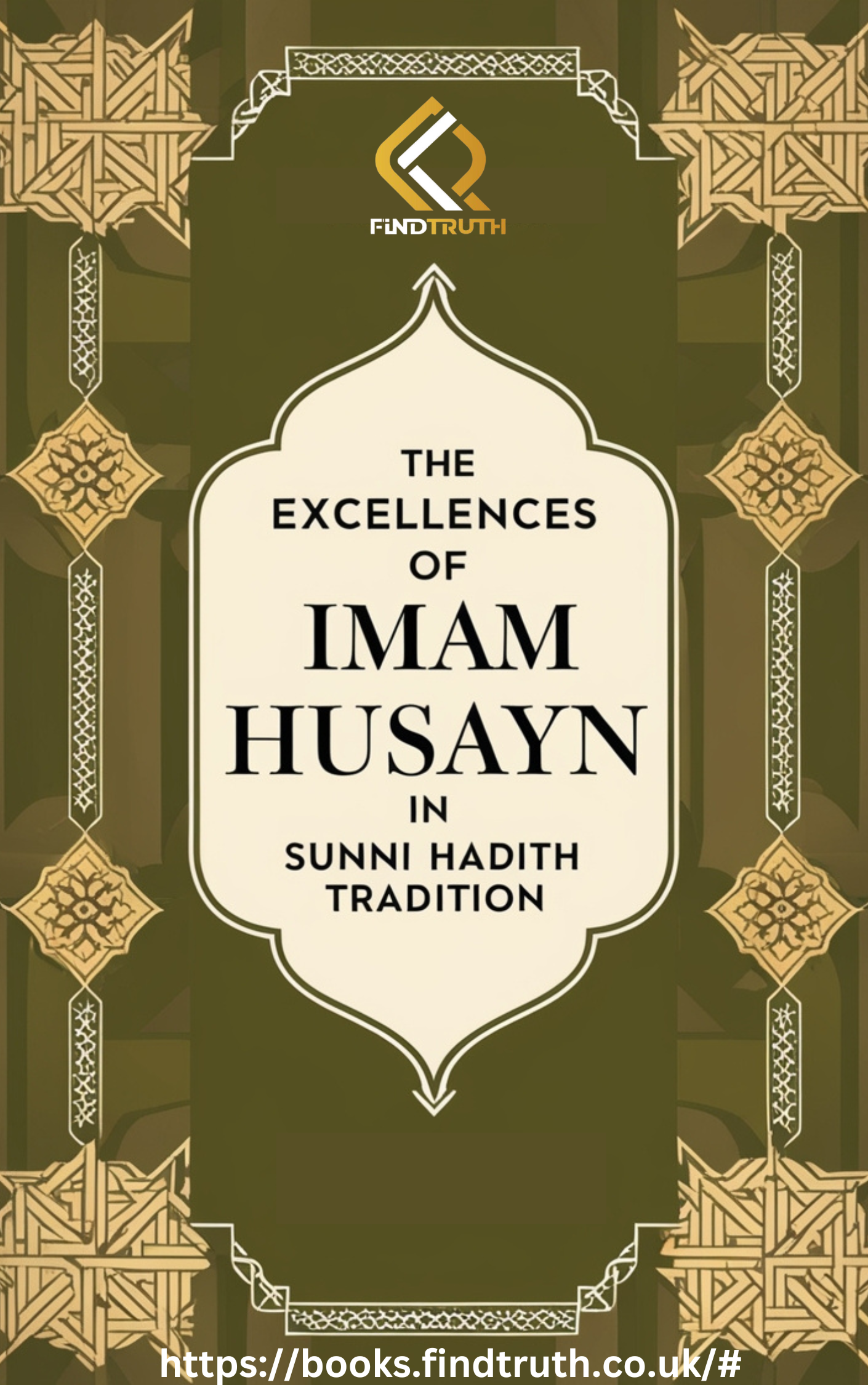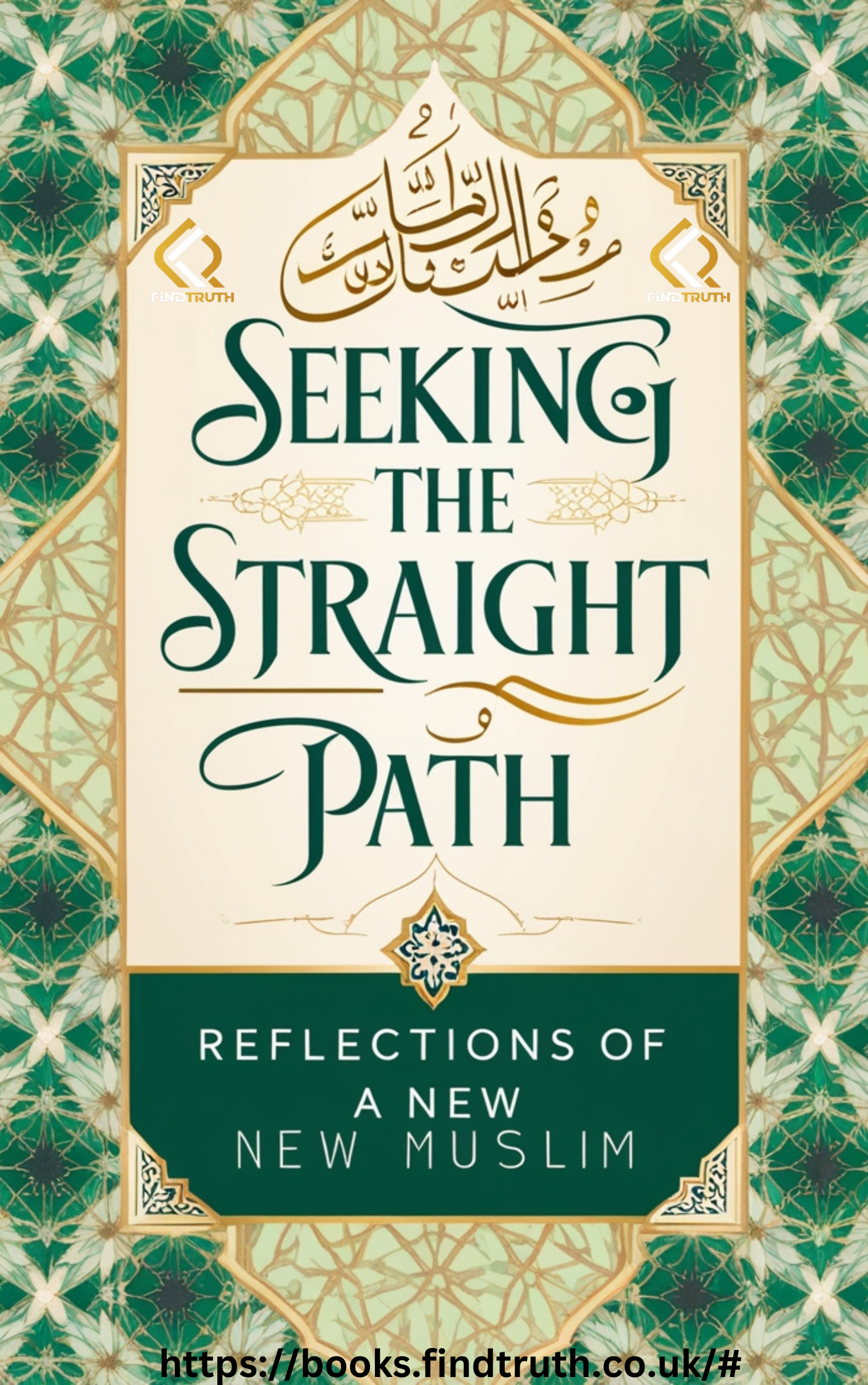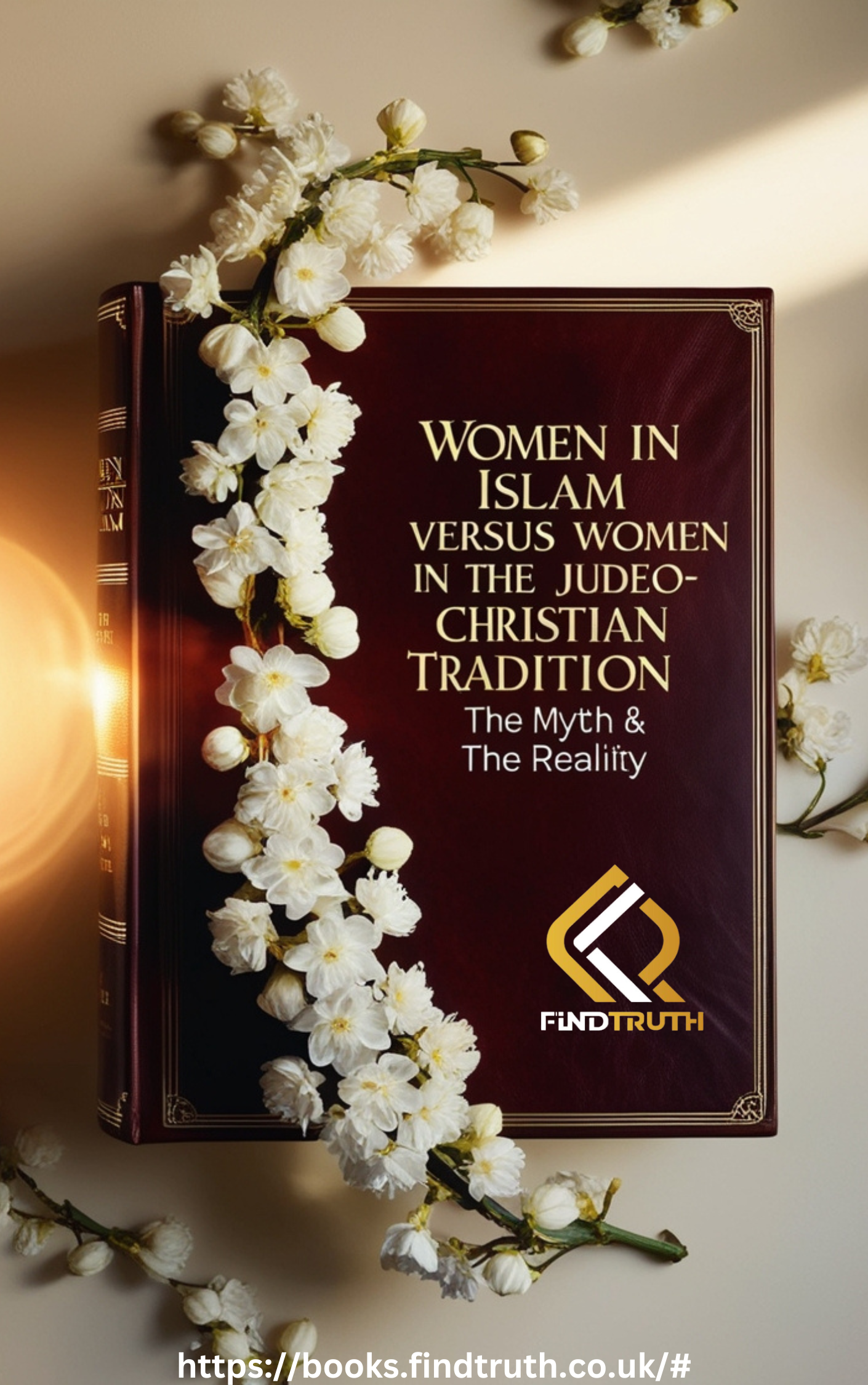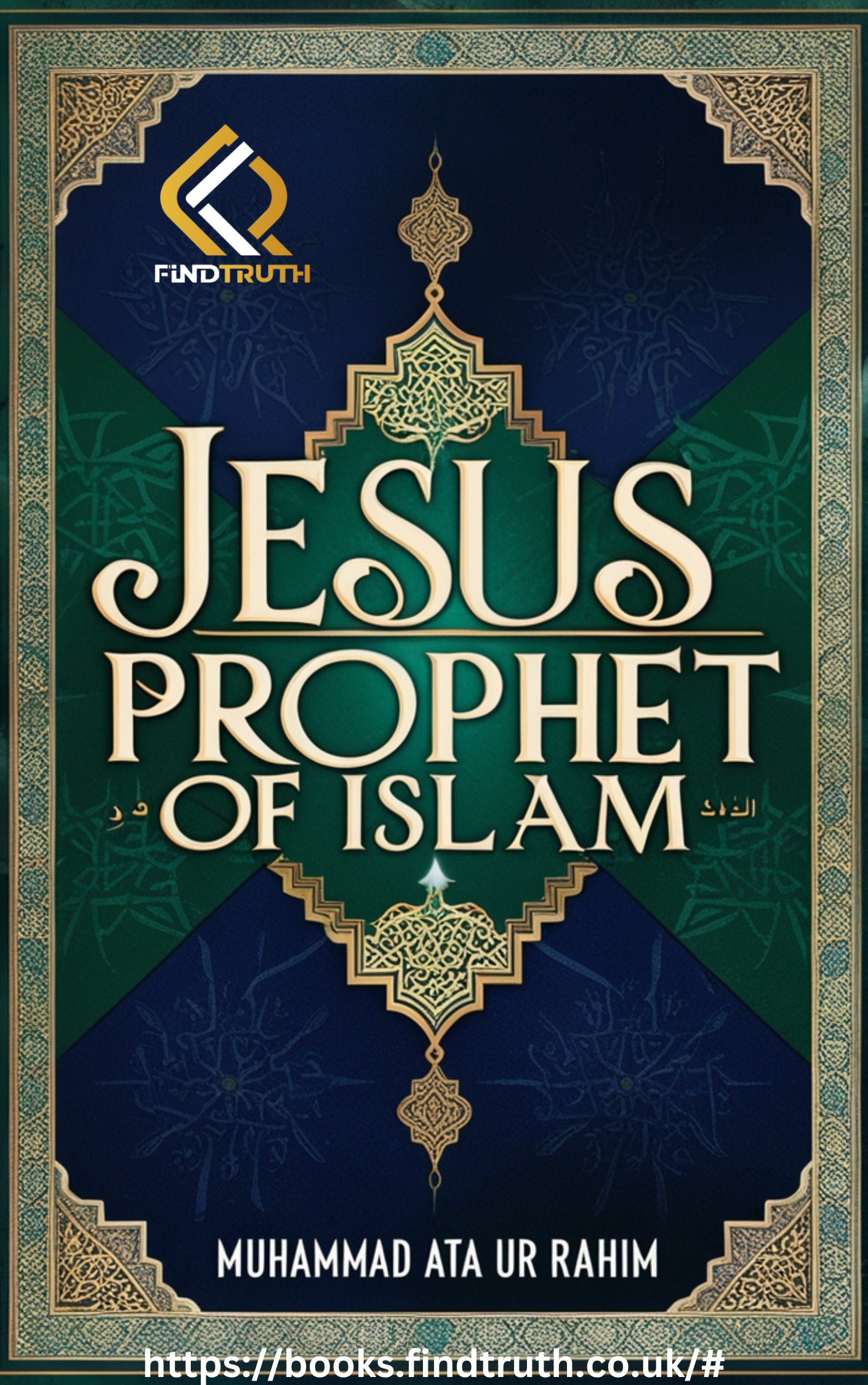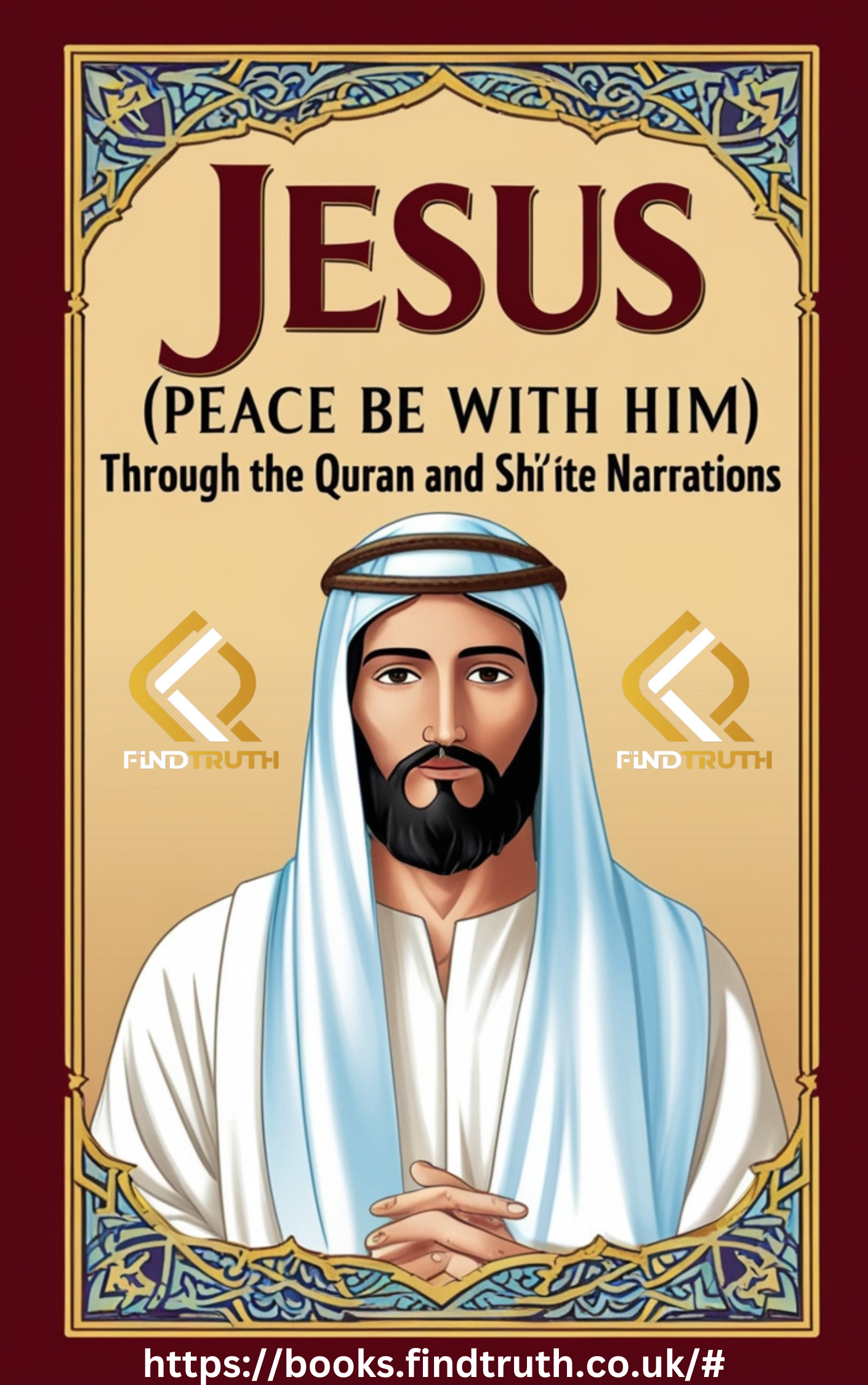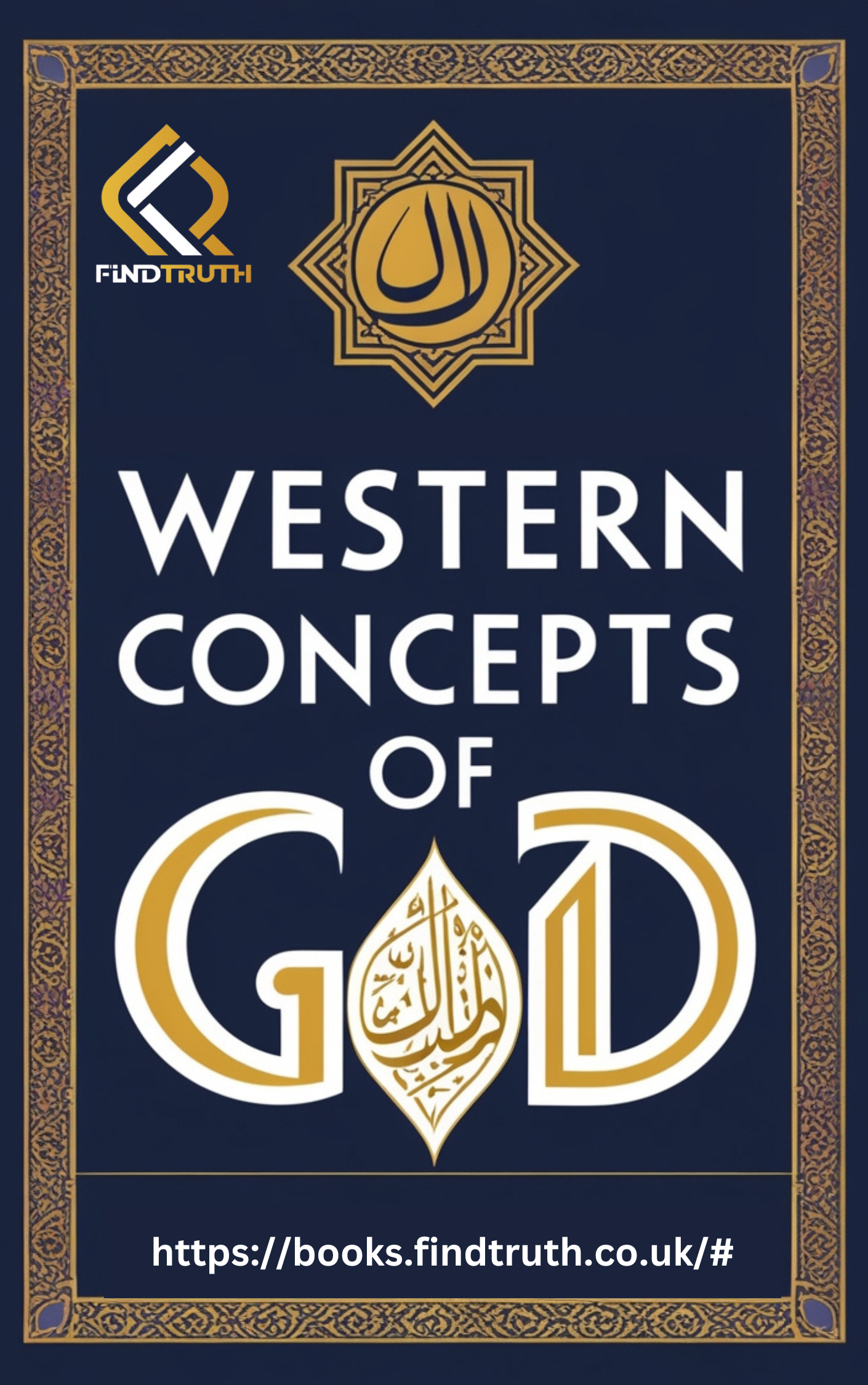Islam’s Jesus
(0 User reviews)
1391
617
Library of Congress Cataloging-in-Publication Data
2008
240
English
After September 11, 2001, the world, particularly the Western world, witnessed a tremendous rise in interest in Islamic studies, including works about what Mus- lims believe and practice. This book explores one of the most important themes of Islamic theology: Jesus and his role in this tradition. Not many people in the West comprehend how Jesus is understood by Muslims generally, nor do they understand the role of Jesus in the Qur’an.
After September 11, 2001, the world, particularly the Western world, witnessed a tremendous rise in interest in Islamic studies, including works about what Mus- lims believe and practice. This book explores one of the most important themes of Islamic theology: Jesus and his role in this tradition. Not many people in the West comprehend how Jesus is understood by Muslims generally, nor do they understand the role of Jesus in the Qur’an. After one of my lectures to an audi- ence of about seventy people, I discovered that only one person in the audience knew that a chapter of the Qur’an was named after Mary, the mother of Jesus. A similar experience occurred when I presented a lecture about Jesus in Islam to a different audience. I found that only about 10 percent of the audience knew that Jesus was a prominent messenger of God in Islam, and only 2 percent knew that Muslims believe in Jesus’s eschatological descent, or the return of Jesus. The media coverage of Reza Aslan’s book Zealot, which equates Aslan’s Jesus with Islam’s Jesus, drives home this point further. The book is about the historical Jesus and has nothing at all to do with the Islam’s Jesus, who, as I hope to show in this book is, in reality, not at all dissimilar from Christianity’s Jesus. Even among Muslims, it is not well known that there are diverse interpreta- tions of references to Jesus in the Qur’an and the Hadith, a fact that can pro- vide inspiration for pluralism. The present work aims to illuminate Islam’s rich theological engagement with the figure of Jesus; work of this nature can lay the groundwork for Muslim-Christian dialogue. The focus of this book involves many questions for both Muslims and Christians. How does the Qur’an speak of Jesus? What is the place of Jesus in Islamic theology? What do Muslims be- lieve about the coming of Jesus at the end of time? Can beliefs about Jesus provide common ground for Muslims and Christians? What is the Islamic ap- proach to dialogue between Christians and Muslims? It is important to note that as a scholar, I am trained in classical Islamic the- ology, which is composed of three major themes: divinity, prophethood, and eschatology. My training, more specifically, is in eschatology. Eschatology is the study of things related to the end times and the afterlife. Among Muslim theolo- gians, there is no doubt that Jesus is an important figure in Islamic eschatology. Almost all manuals of Islamic theology contain a statement that includes the words “and we believe in the descent of Jesus.” For me, this is both interesting and challenging. How an individual could descend from heaven to earth is a perplexing theological problem. This book is a result of my attempts to find an answer to this question. My response is from a Turkish Muslim scholar’s per- spective, one that has also been enriched by contemporary Muslim theologians and by my experience working at American Catholic institutions, more specifi- cally teaching courses on Islam and general religious studies courses at a Jesuit university, and by my significant engagement in interfaith dialogue. Belief in Jesus is one of the major principles of faith in Islam, as he is con- sidered one of the five elite prophets; the others are Abraham, Moses, Noah, and Muhammad, peace and blessings be upon them all. They are called the ul al-‘azm prophets, meaning the possessors of steadfastness. Jesus is a messenger of God like his brother Muhammad, peace and blessings be upon him.1 He is so important in Islam that the highest Muslim in rank after Muhammad still cannot reach the spiritual level of Jesus. Jesus is the messenger of God, but in contrast to the traditional Christian teachings, he is not believed to be a part of God or an incarnation of God. This is also true for all other prophets of God. In the afterlife, Jesus is allowed to intercede and ask God to forgive sinners, but he cannot forgive sinners by himself. This is also true for the Prophet of Islam. It is God who forgives the sins of human beings. In Islamic theology, the limited power of prophets does not negate the fact that Jesus was among the highest of prophets in the chain of prophethood. Is- lam gives remarkable spiritual rank to the messengers of God but never allows a monument or statue to be erected in their honor. This is mainly a result of Islamic sensitivity to any possible exaggeration of the statues of highly regarded personalities, which could easily lead to worshipping them as deities. In Islam, one should worship only God. It should be noted that, similar to Muslims, some Christian denominations such as the Anabaptists and followers of Huldrych Zwingli (d. 1531) reject the presence of icons in their places of worship. The Islamic understanding of prophethood should not be confused with the term “prophecy” as is often used in the English-speaking world to connote predic- tions of the future. Similar to many theologically responsible Christians, fol- lowers of Islam do not use the term “prophet” loosely. In Islam there are very strict criteria regarding prophethood, and not everyone who speaks about the future can be called a prophet. A prophet speaks on behalf of God and in some cases meets with the angel Gabriel to receive revelation from God. Therefore, a prophet is an appointee of God on earth, one who declares the message of God to people. Considering Jesus a prophet in Islam is not degrading the level of Jesus; in fact, it puts him among the highest figures in the realm of humanity. Theologically speaking, when Muslims say he is among the five greatest mes- sengers of God, they express their belief that these messengers are the highest throughout human history. Jesus, as a messenger of God, is an integral part of Islamic theology, litera- ture, culture, and civilization. As I shall discuss in the following chapters, a say- ing of the Prophet speaks of Jesus’s return and of his praying in a mosque with the Muslim community when the Muslim messianic figure, the Mahdi, asks Jesus to lead the prayer. Since the early period of Islam, Muslims have read the sayings of the Prophet, referred to as Hadith, about Jesus and the end-time sce- nario, finding nothing strange about Jesus’s praying in a mosque. Muslims see no incongruity between Jesus and the mosque since the Prophet Muhammad and Jesus are considered spiritual brothers. This clearly indicates that Muslims have honored Jesus as a part of their faith and culture. Perhaps for this reason many adherents of Islamic faith name their children ‘Isa, the Qur’anic name for Jesus. Jesus also has an important role in Islamic eschatology. According to Islamic theology, only Jesus, among all prophets of God mentioned in the Qur’an, will come as a messianic figure with an eschatological role that includes bringing justice and the revival of religion. Islamic theology encourages Muslims to pre- pare a good environment and participate in the process of end-time restoration. Islam does not accept the idea of waiting for the coming of Jesus without the participation of individuals to make the world a peaceful place. One can argue that Jesus’s role in Islamic theology is even greater than the role of Moses or Abraham. Both the Qur’an and the Prophet of Islam speak extensively of the birth, life, message, and end of Jesus’s life on earth as well as his current state. Muslims believe that when Jesus’s enemies attempted to crucify him, they could not do it. Instead, God raised Jesus to himself and rescued him from persecution by his enemies. I shall discuss this belief in detail in the following chapters. His return to earth is not explicitly mentioned in the Qur’an, yet it is highly emphasized in the sayings of the Prophet. His return is among the major por- tents of the final moment of human history, known in the Qur’an as the Hour or al-Sa‘a. This is understood from the body of the sayings of the Prophet as good news for Muslims. While Jesus’s return is known in the Christian tradition as the Second Coming of Jesus, it is described in Islamic theology with the Arabic phrase “nuzul ‘Isa,” which I translate as the descent of Jesus, usually meaning from heaven. This has no connection to the Christian understanding of Jesus’s descent into hell. Etymologically speaking, the word nuzul is used to describe both physical descent and spiritual arrival from on high. The same word is used for the coming of the mercy of God, the coming of the rain (which indicates that rain comes from the sky and from the mercy of God), and the coming of angels. Throughout this work, I will consider these nuances while interpreting the descent of Jesus from an Islamic theological perspective. The roots of the term nuzul lie in the sayings of the Prophet of Islam, the second most important source (after the Qur’an) for Islamic theology. Some classic secondary Islamic sources have used terms such as “emergence” or “coming” instead of “descent.” In prescientific cosmology, these terms were understood literally, but they gen- erally are understood allegorically in contemporary Islamic understanding. As I shall discuss, what is common to all sources is that Jesus’s return will happen at the end of time as a sign of the Final Hour. The Prophet’s sayings indicate both minor and major signs of the Hour. Je- sus’s descent is among the major signs, alongside the emergence of the Anti- christ and the rise of the sun from the west. These have been commonly under- stood by Muslims in a literal way, but they can be understood in an allegorical way as well. The image of Jesus’s return in the mind of Muslims is related to Jesus coming from heaven; thus, the word “descent” has been used for Jesus’s return in both the sayings of the Prophet and later Muslim literature. Theologi- cally speaking, no one can determine the time of Jesus’s descent. The only thing that is known for sure is that the Prophet spoke about the descent, and since the Prophet spoke about it, it is believed as truth. But the texts on the return can be understood in both allegorical and literal ways. It should be noted that the prophetic remarks on the role of Jesus are all related to this world and not to the afterlife. Present existence in Islam has para- mount importance. This worldly life is a test. Thus, the descent of Jesus entails a remarkable struggle jointly performed by Jesus and the Muslim messianic figure in Islamic eschatology, the Mahdi. The realm of the afterlife is where struggle no longer exists. In the Qur’an, Jesus is mainly characterized by his message, which centers on worshipping the one God. However, in sayings of the Prophet, Jesus is char- acterized as someone who must come at the end of time as a mercy from God. Jesus will come to bring justice to the world. Muslims understand his coming as the promise of change in the course of history and as the onset of the establish- ment of justice. Jesus, with his Muslim messianic helper, a symbol of goodness, will defeat the Antichrist, a symbol of oppression and evil. This Islamic un- derstanding of Jesus’s victory over the Antichrist should not be confused with certain Christian concepts of the coming of the kingdom of God, where no evil remains. From an Islamic theological perspective, as long as this world exists as a place where people are tested, it is impossible to fully get rid of evil. In this work, my perspective is that of a Muslim scholar of Islamic theology who looks at the text in its context using the methodology of Islamic sciences, such as the commentary of the Qur’an (Usul al-Tafsir) and the sayings of the Prophet (Usul al-Hadith). I am inclined to interpret Islamic texts in light of modern scholarship rather than read them simply on a literal level. For the sake of a complete investigation of the topic, I will examine those literalist views and discuss their theological validity. Many Muslims may find my approach very new because it synthesizes classical and modern sources. While limited Qur’anic verses are cited as sources for Jesus’s eschatological role, more than 100 sayings of the Prophet can be found in the Hadith collections, some of which are examined in this work. Exploring Jesus as an eschatological figure in Islam also requires a brief discussion of other figures that appear in the same scenario and have strong relationships with Jesus. These figures are the Mahdi, the Islamic messianic figure who is supported by Jesus, and the Antichrist, the evil persona, who is presented in the sayings of the Prophet as al-Dajjal, the Liar, and the stern opponent of Jesus. Also, because I argue that Jesus is pivotal to both Muslims and Christians, the discussion of Jesus’s descent necessitates a discussion of the future of interfaith cooperation, particularly between Chris- tians and Muslims, who together constitute more than half of humanity. I hope this study will be a valuable contribution to interfaith dialogue and will enhance understandings in the English-speaking world about Muslims and their faith, including their belief in Jesus. My goal in this book is to shed light from an Islamic theological perspective on Jesus as a prominent theme of Islamic eschatology. I am confident that focusing on Jesus as a major figure in Islamic theology will be of interest to contempo- rary Christians, Muslims, and all people interested in interfaith endeavors. The book has nine chapters that lay out major elements of Muslim theol- ogy related to Jesus and his decent and their implications for contemporary Muslim-Christian understanding. Chapter 1 explores the Qur’anic Jesus and presents a foundational knowledge of Jesus as a messenger of God. More spe- cifically, it asks whether the descent of Jesus has taken place in the Qur’an. It also examines Qur’anic verses on the birth of Jesus, his attributes, the matter of his death and crucifixion, and his ascension to God. Chapter 2 discusses the es- chatological role of Jesus from a Qur’anic perspective. Chapter 3 situates knowl- edge of future events in Islamic theology and the place of Jesus among these eschatological events as one of the signs of the Hour foretold by the Prophet of Islam. Chapter 4 presents concrete examples from the Hadith literature on the eschatological descent of Jesus. The chapter investigates the sayings of the Prophet through a thorough discussion based on the methodology of Hadith criticism. Chapter 5 explores various speculations about the time and place of Jesus’s return, all of which indicate in some way the presence of Jesus as a helper, rescuer, and bringer of justice. The Islamic eschatological scenario of an alliance between Jesus and the Mahdi against al-Dajjal is the main subject of discussion in chapter 6. Chapters 7 and 8 examine the differences between the literal and allegorical approaches to Jesus’s eschatological role in Islamic theol- ogy. These chapters demonstrate the importance of allegorical understandings of certain religious texts. The final chapter argues that Jesus and his descent in Islam can serve as a common ground for Christians and Muslims, a contribu- tion to broader interfaith dialogue between the members of the Abrahamic family—Jews, Christians, and Muslims—and adherents of other religions. I have enriched the present work with two appendices from prominent Turk- ish Islamic scholars, Muhammed Hamdi Yazir (d. 1942) and Fethullah Gülen (b. 1941). The translation from Yazir (appendix 2) is my own and the first available in English. Appendix 1 is an original document provided to me by Gülen, to which I have made slight editorial revisions. While there are a few books written in English on the place of Jesus in Islam, to my knowledge there are almost no books written in English on the eschato- logical descent of Jesus in Islam. I hope this work will help fill this gap in schol- arship and be a resource for those who wish to explore this material in greater depth. It is my hope that Islam’s Jesus will contribute to an Islamic understand- ing of Jesus and will advance the dialogue between Muslims, Christians, Jews, and adherents of other faiths.
There are no reviews for this eBook.
There are no comments for this eBook.
You must log in to post a comment.
Log in

